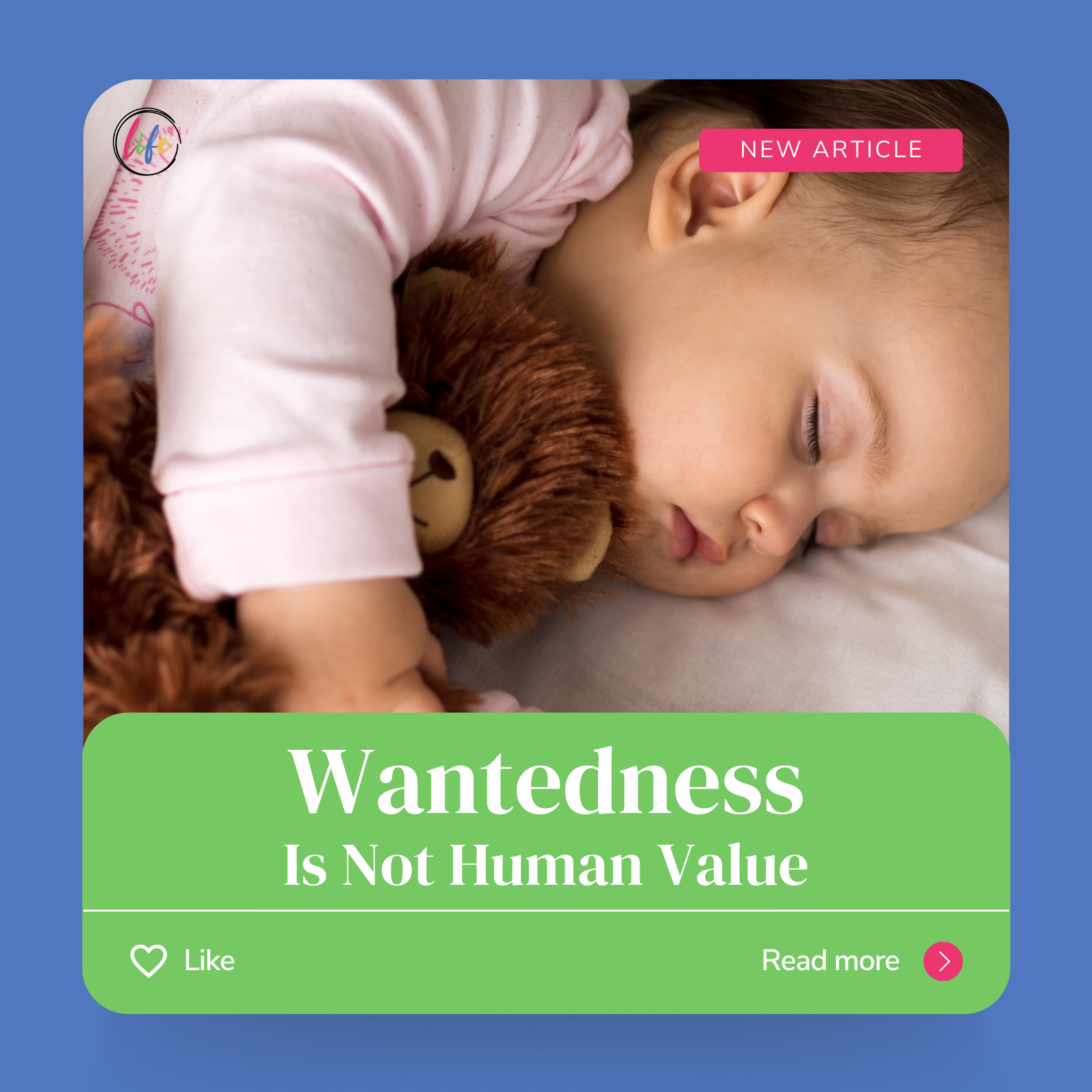
One of the most common justifications for abortion is that a child’s worth depends on whether they are “wanted.” If the pregnancy is desired, the baby is celebrated. If it is not, that same baby may be seen as disposable. But wantedness should never be the measure of human dignity. Human rights, history, and compassion all show that tying value to desire is inconsistent and dangerous.
The Problem with “Wantedness”
“Wantedness” shifts with circumstances—finances, relationships, emotions, or timing. If dignity depends on such variables, then dignity is not real at all.
As President Ronald Reagan wrote in Abortion and the Conscience of the Nation:
“We cannot diminish the value of one category of human life—the unborn—without diminishing the value of all human life.”
Even under the dangerous criteria that a human life is only valuable if it is wanted, it is a false assumption that the unborn humans subject to abortion are unwanted and will remain unwanted. Many women who choose abortion come to regret that decision and later want the child once they are past the time of crisis. Also, it is estimated that there are 1-2 million couples waiting to adopt each year. So, those humans are wanted – even if not by their mother at that particular point in time.
Human Value Is Not Conditional
Values among cultures vary but the human right to life is the foundational value. It was the first right enumerated in our Declaration of Independence and is reiterated in the Constitution. It is explicitly stated in the UN Universal Declaration of Human Rights. Until recent times, it has been reaffirmed throughout our nation’s history to apply to every human – born and unborn.
“A child in the womb of the mother is under the protection of the law, and possesses all the privileges of a living being.” Pennsylvania Supreme Court, Swift v. Duffield, 5 Serg. & Rawle 38, 40 (Pa. 1819)
Finances, timing, and relationships may all feel overwhelming — but those changing realities don’t change the child’s humanity.
Former U.S. President George W. Bush affirmed this in his 2002 Sanctity of Human Life Day proclamation:
“Our society has a responsibility to defend the vulnerable and the weak, and to protect every child, born and unborn, regardless of whether they are planned or wanted.”
This perspective reminds us: human dignity is stable and secure, even in moments when circumstances feel anything but.
Compassion Beyond Circumstances
Abortion is often chosen not because a child is truly unwanted, but because a mother feels unsupported or trapped. True compassion doesn’t mean ending a life – it means surrounding both mother and child with care.
As Dr. Alveda King, a long-time Democrat turned pro-life voice, said in an interview:
“Life is a human rights issue, a woman’s issue, a family issue, and a civil rights issue. But those in the womb need fair and equal representation.”
This perspective calls us to do better: to meet women where they are, to walk with them in their struggles, and to affirm the worth of both lives involved.
Why This Matters
If society teaches that life only has value when it is wanted, we create new injustices. We already see the disabled and elderly being treated as expendable – subject to abortion and euthanasia. The position of valuing one human life over another is the very basis of oppression throughout the world. When we start to put people in categories, we are all eventually put at risk. However, when we affirm that human dignity is inherent, we build a culture that protects every human being and offers real support to those in need.
A child does not become valuable because of wantedness. They are valuable because they are human. Our calling is to recognize that dignity, defend it, and extend compassion that embraces both mother and child.
Learn more about the various stages of fetal development (conception, first, second, and third trimester) and don’t forget to follow us on social media (Facebook, Instagram, and TikTok).